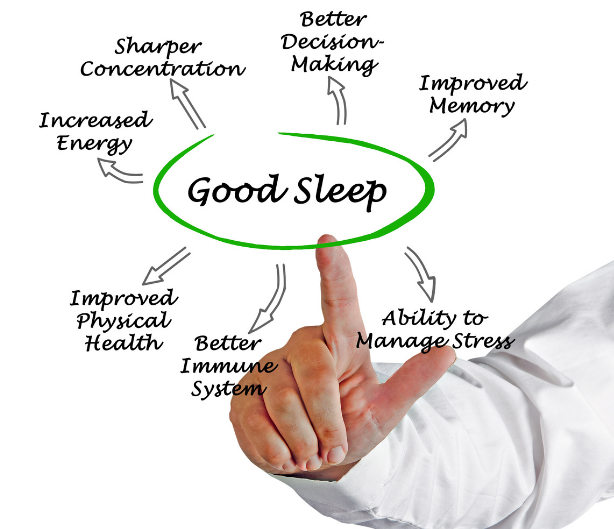Edition: August 9th, 2021
Curated by the Knowledge Team of ICS Career GPS

- Excerpts from article by Kevin Kruse, published on Forbes.com
Pre-pandemic mental health conversations were about achieving a work-life balance through stress-busting solutions like meditation and mindfulness to therapy chatbots and apps.
In the last 18 months, resilience has climbed to the top of everyone’s list of the things to address, when talking about mental health.
The good news is that one of the best ways to decrease stress and increase resilience is free, painless, nearly effortless, and can be done from the comfort of your own home.
The answer to less stress, higher resilience, better brain function, and improved wellness is 7-9 hours of quality sleep — every night.
How Sleep Unlocks Resilience
Similar to how recovery is just as important as training for athletes, getting sufficient sleep is critical to work performance.
Sleep is a period during which the brain is engaged in a number of activities necessary to life—which are closely linked to the quality of life.
Along with physical health factors such as heightened immunity and lowered risk for cancer and heart disease, sleep contributes to improved:
- Memory
- Decision-making
- Concentration
- Reasoning
- Problem-solving
- Reaction time
- Alertness
In other words, adequate sleep is the precursor to all the functions needed for optimal job performance.
On the flip side, not getting enough sleep:
- Increases stress hormones
- Hinders decision-making
- Hinders problem-solving
- According to the Centre for Disease Control, going too long without sleep can impair your ability to drive in the same way as drinking too much alcohol.
Sleep is essentially the brain’s housekeeping mechanism. It assists in removing toxins and waste, while aiding in neuroplasticity. Neuroplasticity is the brain’s “ability to adapt to input.”
Neuroplasticity enables the brain to ‘pick up’ new skills, change and adapt to its environment stimuli, and ultimately learn new things.
Ana Sandoiu at Medical News Today
Without sufficient sleep, our brains can’t process new information and will struggle to recall the information in the future—two functions essential to adaptability and resilience.
Why Aren’t We Sleeping?
“Hustle culture” has tried to downplay the importance of sleep.
The “rise and grind” mentality dictates that tiredness from working late and waking early is just something to push through.
Some claim that they don’t “need” as much shut-eye as everyone else, but research suggests that very few people can effectively function on less than eight hours per night.
Sleep debt is what happens when you neglect to give your body the sleep it needs over time. The effect is cumulative — if you only sleep five hours for two consecutive nights when your body needs eight, sleeping eight hours the third night won’t be enough to put you in the green.
Binge sleeping on weekends is often the result of getting too little sleep during the workweek and is often used to justify poor sleep habits. But binge sleeping as a way of catching up on sleep promotes an inconsistent sleep schedule, which is harmful in and of itself.
The bottom line: You simply can’t be at your best when you’re not getting enough sleep.
Here are 5 ways to improve your sleep and, thus, enhance your resilience and performance:
1. Establish a consistent sleep pattern
To avoid the negative effects of binge sleeping, try to keep your weekend bed and wake-up times within two hours of your weekday routine.
2. Avoid bright lights before bedtime
Melatonin, a brain chemical that promotes sleep, is triggered by darkness. Lowering the lights tells your brain it’s time to switch from producing serotonin to melatonin.
3. Track your sleep quality and duration
Many fitness trackers now come with built-in sleep tracking, including time spent in each sleep stage, along with standard heart rate monitoring and step counting.
Wearing one to bed will bring more awareness to the quantity and quality of your sleep and help you set goals for better and longer snooze sessions.
4. Know this – alcohol intake reduces sleep quality
While a glass of wine or a few beers may help you fall asleep faster, alcohol reduces time spent in REM sleep, the most restorative sleep stage for the brain.
5. Understand that sleep is essential for good health
Sleep is just as essential for optimum health and performance as a nutritious diet and exercise. It’s not optional. Sleep isn’t a luxury; it’s a necessity.
…
(Disclaimer: The opinions expressed in the article mentioned above are those of the author(s). They do not purport to reflect the opinions or views of ICS Career GPS or its staff.)



